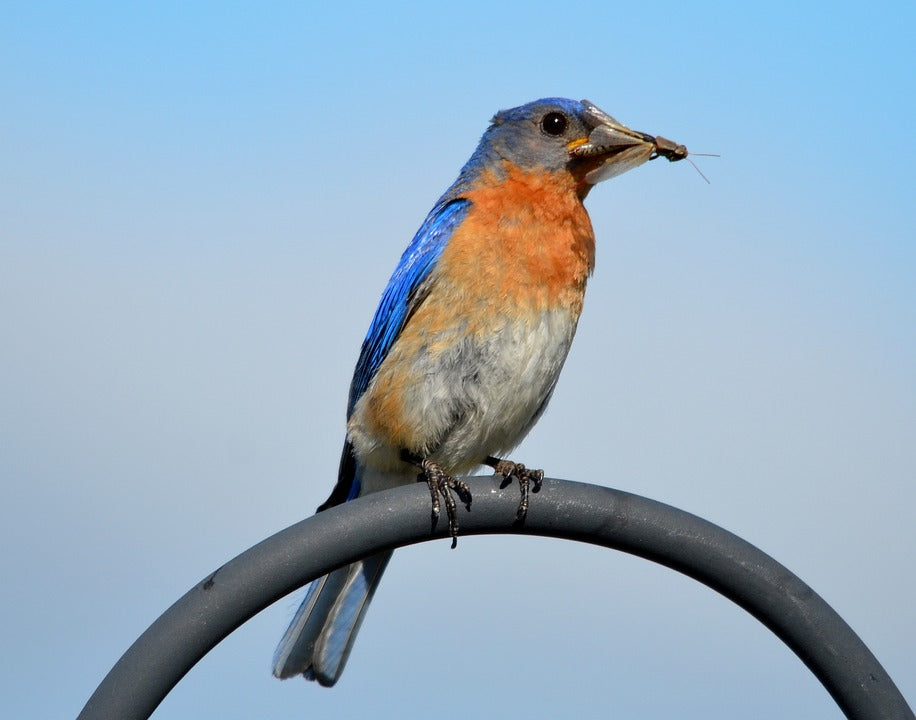Offer
Provide additional details about the offer you're running.
Provide additional details about the offer you're running.
Provide additional details about the offer you're running.

While we certainly have an affinity for all of our feathered friends, there is something admittedly special about bluebirds or eastern bluebirds here in our neck of the woods. Their strikingly blue plumage paired with rust or pale underparts make them a highly desirable sight, but can also be helpful in cleaning up a number of unwanted insects from your property as well.
With this in mind, we have created a quick reference guide almost anyone can use to improve their yard and make it more comfortable for these birds. With the right tweaking, you should soon be delighted to the gentle song of the eastern bluebird almost any day of the week.
Food
It’s no secret: a reliable food source will attract a wide variety of birds and would keep many of more than happy for years to come. With attracting birds such as bluebirds, you will need to dial up a little bit of customization to really bring them in and keep them local.
These birds, especially right now, need protein in a big way. Bluebirds derive their protein from insects, but also enjoy snacking on a variety of berries such as holly and elderberry. In light of this, be sure not to use any insecticides on your lawn and to provide mealworms provided on the ground or in a platform feeder.
Shelter
This is a big one also, but again, needs a certain level of customization and ingenuity. These cavity-nesting birds will often take up residence in strategically-placed nesting boxes. These birds love wide open spaces and will certainly shy away from overly dense areas of brush or forest. Nesting boxes placed 5-7 feet off the ground on the edge of an open area should become rather inviting to these small thrushes.
While the above is definitely a top priority, there are many other things you can do for bluebirds. Keep those bird baths full, as with any birds, bluebirds will remain in an area with consistently available water and food. If your yard has great vantage points for perching such as small wire fences or fence posts, keep an eye out for bluebirds perched atop them while foraging for food.
High Quality Blend